Media and Democracy in Developing Countries, Uganda in Particular.
Author: Mubiazalwa Bonny
Key Word: Media, Political rights, free and fair, Election, Developing
ABSTRACT
A strong democratic society would be marked by respect for human rights which includes
freedom of the press, the right to vote and be elected at genuine and periodic elections, freedom
of assembly and association, and good governance among others. The study used a cross-sectional design due to the limited time for data collection and analysis of facts, a quantitative
approach because it involved the use of structured questions to collect data which was in
form of numbers and statistics. It was further revealed that democracy is marred with
voter bribery, intimidation, violence, harassment of the opposition, and control of the
Electoral Commission by the ruling government.
Findings also revealed that the government heavily interferes with the media’s role of
promoting democracy and human rights by invoking draconian laws such as sedition,
and false news, and through the closure of critical media houses and arrest of vocal journalists.
Findings revealed that the media has played a big role in exposing corruption and
scandals in public offices. These findings imply that despite the milestones the media
have made in Uganda, the political atmosphere is still harsh and freedom of the press is still
a pipe dream. The study reveals that not only media in Uganda hit the rocks in day-to-day professional practices but also sister and brother countries like Somalia in the Horn
of Africa, Kenya, and Tanzania to mention but a few face draconian laws. Government as
a starting point in reviewing all bad laws and drafting policies that would see improvement
in democracy and human rights in Uganda.
Introduction
Media is sometimes referred to as the 4th Organ of the government because it is supposed
to speak the truth and keep our democracy on track well known as the “FOURTH ESTATE”
being added to the Executive, Legislature, and Judiciary.
It should be noted that media act as the heart of a human being its failure leads to
death. This signifies how helpful media is in all aspects of life politically, socially,
economically, and culturallyly ways.
It is believed that Media sets agendas and people are shaped to rely on the media for all
or most of their information regarding politics. Whatever the media chooses to talk about
is the information that people receive (Agenda Setting). If the media chooses not to talk
about it, then people are generally uninformed about the issue (Agenda Cutting). If
people are uninformed about the issue, then it would not be a priority in the public
interest.
Catching Angle
Both national and international legislation states that everyone has the right to freedom
of opinion and expression including ‘media democracy in Uganda. Limitations to the above
human rights can only be acceptable and demonstrably justifiable in a free and
democratic society in certain circumstances, such as risks to public security or health (Art.
43 Ugandan constitution, 1995; ICCPR, art. 19(3)). The absence of media censorship in
a country is seen as an indication of a free society where people may criticize those
holding power as well as stimulating debates on issues of national, regional and
international importance (Smith, 2010: 293). Media freedom is therefore ‘an important
right’ recognized in a democratic society as a mechanism and tool that enables the citizens
to participate in their own governance by analyzing what the government is doing
and holding their leaders accountable for their actions (HURINET-U, 2010:5).
Despite the constitutional guarantee of the freedom of expression, and enactment of
domestic legislation that expands this right, restrictions, and censorship of media still exist
(Sekagya, 2010; Amnesty International, 2000). The Penal Code Act for example links
Media and democracy in developing countries
materials published by journalists to sedition, the Anti-terrorism Act prohibits promoting
acts of terrorism through publication, and other laws which would be discussed in chapter
four of this thesis. Based on the above domestic laws, over 30 journalists have pending
cases in the court of law and yet their trials are regularly postponed (HRNJ-U, 2011:5).
Notably, the good laws are non-operational, and depending on the circumstances, the
existing domestic media laws have stifled the freedom of media (Lugalambi 2010:29, 30).
Similarly, media houses continue to be attacked, intimidated and their equipment
vandalized by state security (HRNJ-U, 2011:5). Raiding of media premises by security
forces continues under the guise of looking for subversive materials, consequently leading
to the temporary closure of media outlets. This study investigates these challenges
related to the practical aspects of the free flow of information by the media in Uganda as
per the objectives below.
Driving objectives
To examine the analysis of past elections in Uganda. To examine the state of elections
and democracy in Uganda. To identify how both the existing and newly proposed laws
impact media freedom in Uganda. To explain the roles media Play in Elections in
Uganda.
Questions to keep in mind.
What is the analysis of past elections in Uganda? What is the state of elections and
democracy in Uganda? How do both the existing and newly proposed laws impact
mass media freedom in Uganda? What are the roles the Media Play in Elections in
Uganda?
After this analysis;
It would help establish causes of human rights violations in Uganda, that administrator
and other stakeholders can use to draw conclusions on how to attend to the situation
so as to make all citizens of any country.
As a copy of this study would be kept as a reference to be used by other writers.
Media and democracy in developing countries
Media practitioners can use this study to impartially change professionalism and to
measure the code of conduct.
Role media play in Election
The media play an indispensable role in the proper functioning of a
democracy. Discussion of the media’s functions within electoral contexts, often
focuses on their “watchdog” role: by unfettered scrutiny and discussion of the
successes and failures of candidates, governments, and electoral management bodies,
the media can inform the public of how effectively they have performed and help to
hold them to account. Yet the media also have other roles in enabling full public
participation in elections:
by educating voters on how to exercise their democratic rights;
by reporting on the development of an election campaign;
by providing a platform for the political parties and candidates to communicate their
message to the electorate;
by providing a platform for the public to communicate their concerns, opinions, and
needs, to the parties/candidates, the government, and other voters, and to interact
on these issues;
by allowing the parties and candidates to debate with each other; by reporting results
and monitoring vote counting; by scrutinizing the electoral process itself, including
electoral management, in order to evaluate the fairness of the process, its efficiency,
and its probity;
by providing information that, as far as possible, avoids inflammatory language, helping
to prevent election-related violence. The media are not the sole source of information
for voters, but in a world dominated by mass communications, it is increasingly the
media that determine the political agenda, even in less technologically developed
countries. A report by the Cairo Institute for Human Rights Studies put it this way: The
media plays a major role in keeping the citizenry abreast of current events and raising
awareness of various issues in any society. It also has an extremely significant impact
on the public’s views and way of thinking. The media is the primary means through
Media and democracy in developing countries
in which public opinion is shaped and at times manipulated. If this is the media’s role then
in the normal course of events, it becomes even more vital in exceptional periods, one of
which is electoral junctures, when the media becomes a primary player. Elections
constitute a basic challenge to the media, putting its impartiality and objectivity to the
test. The task of the media, especially national media outlets, is not and should not be
to function as a mouthpiece for any government body or a particular candidate. Its basic
role is to enlighten and educate the public and act as a neutral, objective platform for
the free debate of all points of view. It is for this reason that election observation teams,
for example, routinely comment upon media access and coverage of elections as a
criterion for judging whether elections are fair. Monitoring the media during election
periods has become an increasingly common practice, using a combination of statistical
analysis and the techniques of media studies and discourse analysis to measure the media’s
role in an election.
The numerous ways in which media ensure democratic electoral processes generally
fall into one of the following categories:
Media as transparency/watchdog, Media as a campaign platform, Media as open
forum for debate and discussion/public voice, Media as a public educator
Media as a WatchDog
In today’s politics and society at large, media is essential to the safeguarding
transparency of democratic processes. This is often called its ‘watchdog’ role.
Transparency is required on many levels including for access to information;
accountability and legitimacy of individuals, institutions, and processes themselves; and
for rightful participation and public debate.
Media acts as a mechanism for the prevention and investigation of allegations of
violations or malpractice. This watchdog role extends from the accountability of officials
and their actions while ‘in office’ to entire processes. For example, media presence at
voting and counting centers is critical to preventing electoral fraud, given that full
measures protecting freedom of speech are guaranteed, and that media are free to act
independently and with impartiality.
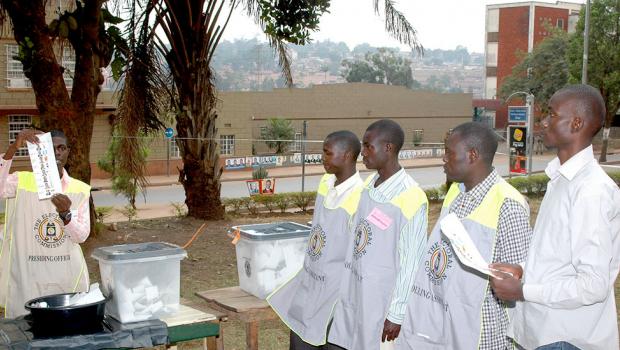
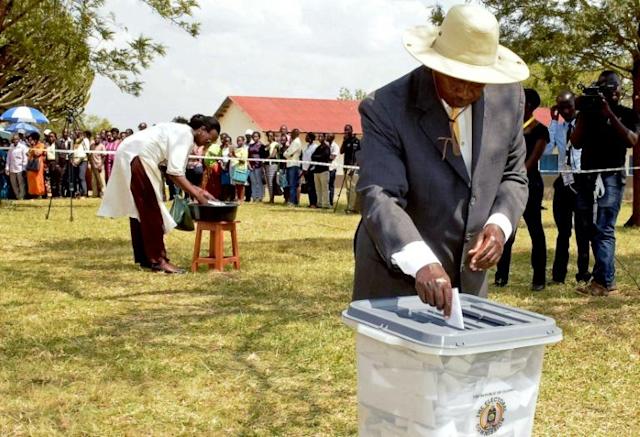
An election cannot be deemed democratic unless the public is fully able to participate
and is unhindered in exercising choice. As such, media are vital in ensuring that there
is a public, i.e. transparent, platform for debate and participation in the
discussion. Candidates are to represent the public. Transparency of an election helps
ensures that this indeed is so. Furthermore, transparency of individual processes (such
as voting, counting, registering, candidate nomination, campaigning, and so forth)
further protects and enables public participation in these processes. The media
contributes to political accountability by ensuring that the state is responsive to all
elements of polity, irrespective of their status.
Here the media should educate and inform the citizens to ensure they have the
necessary understanding of the political system, democratic principles, constitutional
rights as well as their roles and rights in it, to enable them to make the necessary demands
on government (Associated Press World stream, 2006).
Media as a campaign platform
Candidates and Parties have an explicit right to provide the electorate with information
regarding their attributes, political agendas, and proposed plans. Besides meeting
directly with members of the electorate, candidates and parties accomplish this task
through campaigns via media. It is paramount to democratic electoral processes, therefore, that all candidates and parties are provided equal access to media for this endeavor.
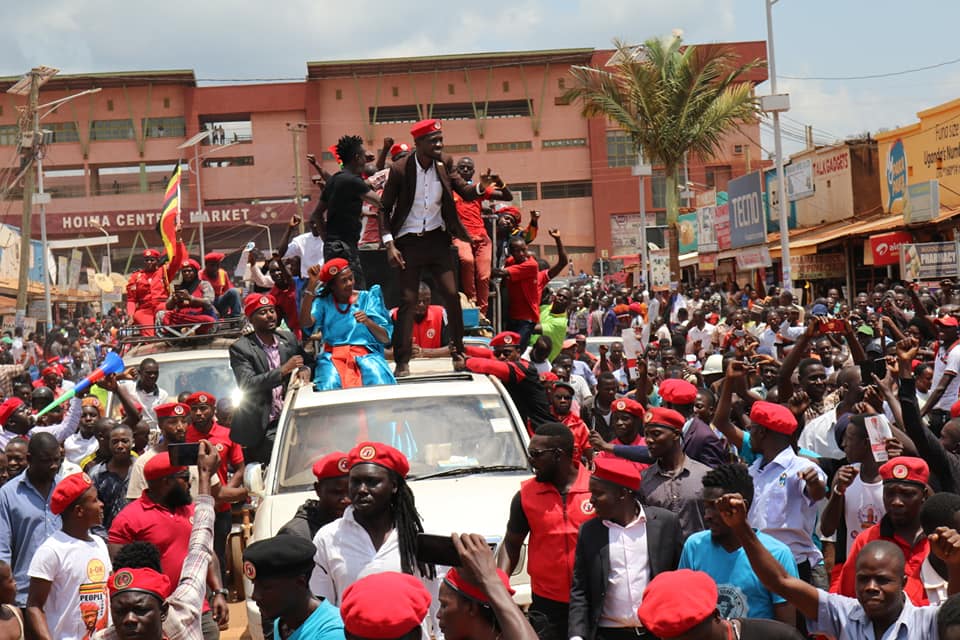
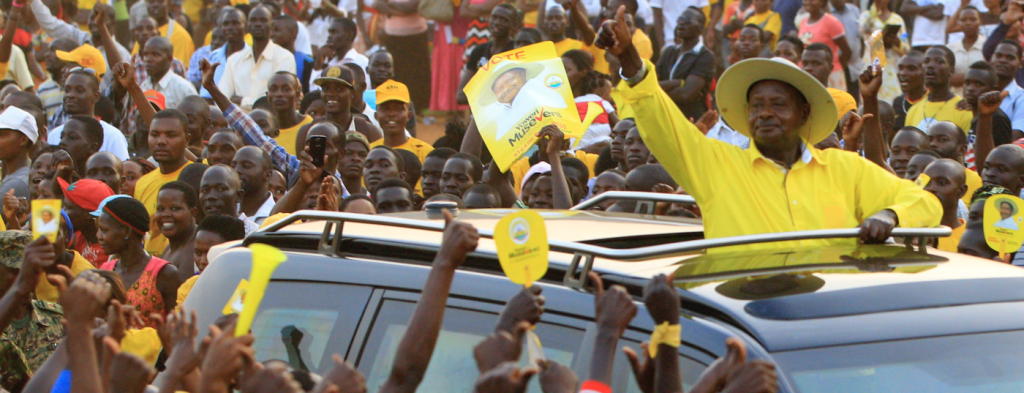
Candidates and parties use the mass media for campaigning through sponsored direct
access spots, paid political advertising, televised debates, the use of social media, and other
mechanisms. They also hope the media would voluntarily cover them because of the
newsworthiness of their campaign activities. Political parties expend vast human and
financial resources on planning and executing mass media campaigns. The NDI Political
Campaign Planning Manual gives an idea of the extent of the organization involved.
The media have several roles in realizing contestants’ right to the campaign:
Creating a level playing field is the first role. This entails equal access to state
broadcasters and other state resources:
Media and democracy in developing countries
Among the most effective, but least analyzed, means of autocratic survival is an uneven
playing field. In countries like Botswana, Georgia, Kyrgyzstan, Malaysia, Malawi,
In Mozambique, Senegal, Singapore, Tanzania, and Venezuela, democratic competition is
undermined less by electoral fraud or repression than by unequal access to state
institutions, resources, and the media.
An uneven playing field is less evident to outside observers than is electoral fraud or
repression, but it can have a devastating impact on democratic competition.
Leveling the campaign playing field is one of the main justifications for the regulation of
media during elections. For more information, see the section on National-level Law and
Regulations on Media and Elections.
Another key role of media in campaigning is balanced reporting, ensuring that candidates receive fair coverage. This is one reason why robust media monitoring is so important in ensuring fair and free elections.

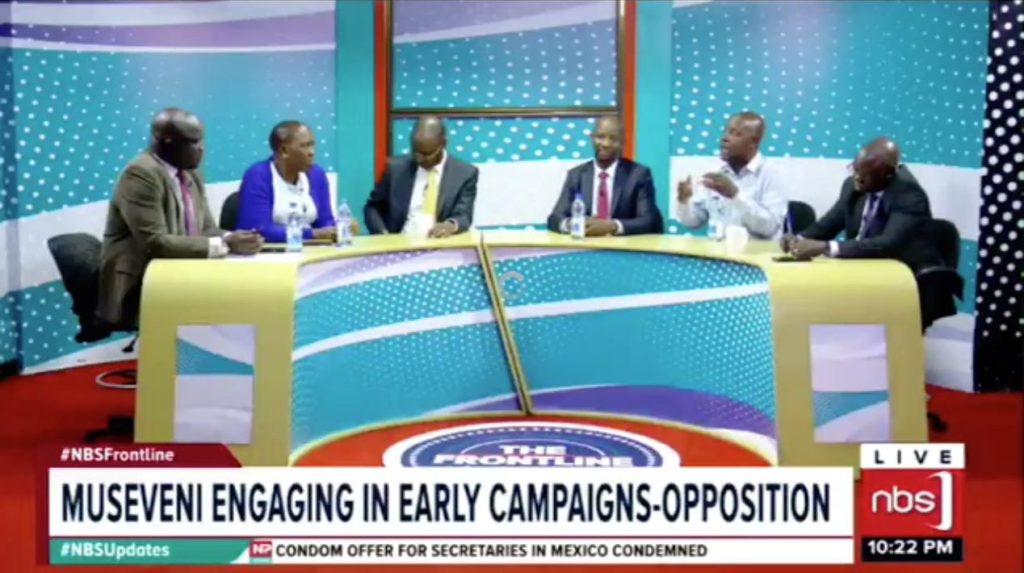
The role of media in providing this platform for debate and discussion is therefore vital. Media provide a mechanism for regular citizens to be heard and therefore influence political agendas and campaign platforms, sometimes garnering support and influencing fellow voters. Forms can include:
- Members of the public, lobby groups, experts with different perspectives, and candidates being interviewed by the media for their views on certain policies;
- Talkback radio and television in which the public air their opinions;
- Contestants’ websites, social media networks, and so on, where the public can interact with them directly;
- News reports on press conferences, protests, and other events held by interest groups; Media surveys of public opinion; Citizen journalism; Debates on blogs, Twitter, and social media sites; Letters to the editor.
Media as a public educator
Media, especially traditional media such as television, radio, and newspapers, as well as new and social media platforms, can serve as a powerful tool for educating the public. The reach and accessibility of media make it an effective tool for disseminating information to large and diverse audiences.

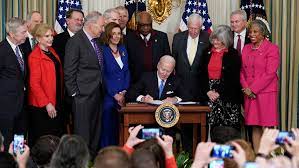
Media can be used to raise awareness on important issues, provide educational content and programming, and promote critical thinking and informed decision-making. For example, news programs can report on current events, political issues, and scientific discoveries, while educational programs can provide in-depth coverage of a wide range of topics, from history and geography to art and technology.
Social media platforms have also become a major source of information and news for many people, and they can be used to spread awareness on important issues and to promote discussion and engagement. However, it’s important to note that not all information found on social media is accurate or reliable, and it’s important to fact-check and evaluate the credibility of sources before accepting or sharing information.
In conclusion, media can play a crucial role in educating the public and promoting a well-informed and engaged citizenry. However, it’s important to use media responsibly and critically and to seek out reliable and accurate sources of information. Media’s role as a public educator is in essence a combination of media’s three other roles with a few added aspects. For example, media as a mechanism for transparency ensures voters are provided with the information necessary to fully evaluate the conduct of officials as well as the process at large.
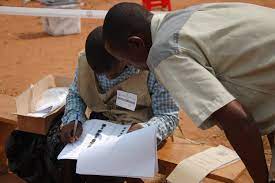
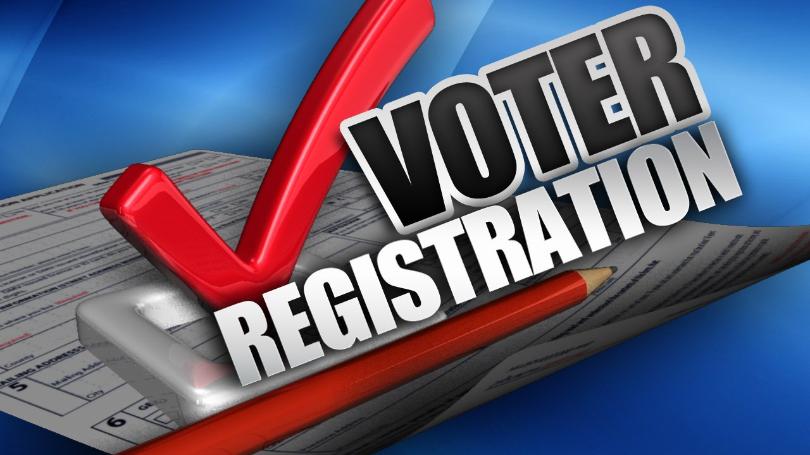
Media as a campaign platform ensures the public is educated in political agendas of all participating parties and candidates equally. Media as open forum for debate and discussion ensures that voters can educate other voters, politicians, and officials.
Media also educates through the transmission of voter information. It also happens indirectly. For example, when media report on an electoral event, details such as the location of voting sites, the necessity of voter registration, how the count would be conducted, and so forth, may be provided to the audience. Media also play an important analytical role, which enhances their ability to play their other roles, as watchdogs, forums for debate, and so on.
In ensuring that the public has the level of informational detail required to make informed choices or action, media utilize various tools of analysis. These include:
Opinion polls; Research and scrutiny of policies, records and reports; Investigative journalism.
Why does Media fail?
The press has become a “toothless bulldog” that can bark but is not able to bite. With regard to
the mass media, Article 29 (1) (a) guarantees media freedoms:
“Every person shall have the right to freedom of speech and expression, which shall include
freedom of the press and other media”. Nevertheless, the media fraternity has and is failing due
to a few mentioned issues below;
Government interference with Press Freedom in Uganda
Media houses in Uganda are subjected to closure and interference of frequencies if they
published or broadcasted information that is critical to the government. In a few cases
where the independent critical press is granted, it’s curtailed by the state. Arrests,
imprisonment, killings, and exile are the order of the day. Draconian laws such as
the publication of false information, defamation, sedition, and others are used to oppress the
media.
In December 1995, journalist Haruna Kanaabi of The Shariat newspaper was sentenced
to five months in jail and a fine of Ugshs, 49,500 for sedition and another fine of Ugshs
1,249,500 for “publication of false news.” He became the first Ugandan journalist to be
convicted on charges of sedition (Foundation for Human Rights Initiative, 2002).
The Shariat newspaper had reported in its issue of August 18-24, 1995 that President
Yoweri Museveni had visited “Uganda’s 40th District (a reference to Rwanda) to solicit
for votes for the Presidential election planned the following year. Kanaabi was arrested
and charged with sedition and publication of false news. He was denied bail and was
subsequently found guilty on both charges (Human Rights Network, 2006). In February,
2007, three Ugandan journalists were questioned by police in Kampala over a story about
soldiers being secretly trained to take police jobs. Two editors of the Daily Monitor
newspaper Bernard Tabaire and Henry Ochieng were questioned along with political
writer Chris Obore.
They were charged with sedition but later released on bail. (Daily
Monitor, 2007) The worst abuse of press freedom in Uganda’s history occurred in October
10, 2002 when security operatives ransacked and occupied the premises of the Monitor
Newspaper for a week. They confiscated diskettes, documents, and a server, and forced
the newspaper to close down for a week.
Media and democracy in developing countries
The army said it took drastic action because the paper had written a false report about
the Uganda Peoples’ Defense Force’s campaign against the LRA rebels. The newspaper
had reported that an army chopper had crashed in the Northern Uganda war zone
Media Challenges in the 21st Century
The analysis of media freedom in the last half of the 20th century limited its key
variable to censorship. Media ownership was mostly limited to State-owned media or
the ruling party. The journalists busied themselves with the news the state wanted to
hear, not what they wanted the citizens to hear. Whether they ran profitably or not was
a non-issue. Subsidies from the state or ruling party were the form of the day
(Schumpeter, 1950).
The exits of the type Malawi’s Hastings Kamuzu Banda, Zambia’s Kenneth Kaunda,
Ethiopia’s Baille Mengitsu, and Ghana’s Ignatius Acheampong, ushered in a new pluralism in
a previously one-party state of Kenya, Tanzania, etc. Newspapers and FM radios sprung
up without much hindrance. In the 21st century, the media is still confronted with
unevpolitical ground.
Censorship seems to have been perfected to the limit of the media’s ability to break the
uneven political ground. Newspapers like the Daily Monitor have been branded enemies
of the Government because they have fallen into the temptation of filling in for
the opposition vacuum which is not very active in keeping the government in check.
The basic mission of the media in Africa and elsewhere in the world would be to offer
an independent critical inquiry, analysis, and exposition of public issues. In its search for
sustainable management strategies, critical media must recognize that a
financially limping newspaper cannot shine a light on the dark comers of vital social-political aspects such as democracy and human rights.
The newspapers would have to recognize the need to constantly search for marketing
strategies in order to protect their critical stance which has been instrumental in
increasing circulation. This would ensure newspaper independence which is a critical
role in fostering democracy and human rights in a country (Ocean, 2002).
Media and democracy in developing countries
The state sometimes also use economic weapon to censor critical and
independent media such as the Daily Monitor in Uganda. For instance, newspapers
at one time suffered a four-year ban prohibiting government departments and public
companies from advertising in it.
Perhaps one of the most forms of political censorship in Uganda was on November 23,
2005, when the government banned media coverage of the trial of the opposition leader
Kizza Besigye. Minister Buturo said the Media Council would revoke the license of any
media outlet that provided a forum for discussion or debate of Besigye’s trial (Daily
Monitor, 2005).
Media and Politics
The benefits of a free press in a democracy include; the free and open exchange of ideas
including ideas critical of the government, widespread distribution of differing views on
controversial issues, open debate during local and national elections, and access to
information by a literate public (Gurevitch, 1990). The media’s role in promoting
democracy can be demonstrated through their monitoring of elections. Their watchful
eyes help to minimize, if not eliminate rigging, and voter intimidation, and bring transparency
to the process. For example, in the 2006 general elections in Uganda, journalists reported
cases of voter bribery, ballot stuffing, and other election offenses.
Ugandan politics are known to be associated with human rights abuses such as arrests
and detention of opposition leaders, use of teargas and live bullets on demonstrators,
bribery of voters, bias in campaign funding, and media coverage by the state broadcaster.
One of the most outstanding incidents of harassment of opposition leaders was during
the 2006 general elections in Uganda when the leader of the opposition Forum for
Democratic Change (FDC) Kizza Besigye was arrested immediately after he returned to the
country after four years of exile in South Africa. The FDC chairman had been arrested
and charged with treason and rape (Daily Monitor, 2006).
Legal instruments supporting democracy and Human Rights
The Universal Declaration of Human Rights Article 19 “Everyone has the right to freedom of opinion and expression; this right includes
the freedom to hold opinions without interference and to seek, receive and impart
information and ideas through any media and regardless of frontiers”. Furthermore,
article 21 (1) states that “everyone has the right to take part in the government of his
country directly or through freely chosen representatives. The second part of this article
provides that “everyone has the right of equal access to public service in his country and
subsection three states that “the will of the people shall be the basis of the authority
of government; this shall be expressed in periodic and genuine elections which shall be
by universal and equal suffrage and shall be held by secret vote or by equivalent free
voting procedures.
The International Covenant on Civil and Political Rights
Article 19(1) “Everyone shall have the right to hold opinions without interference.
Everyone shall have the right to freedom of expression; this right shall include freedom
to seek, receive and impart information and ideas of all kinds, regardless of frontiers.
The African Charter on Human and Peoples’ Rights
Article 9(1) “Every individual shall have the right to receive information. Every individual
shall have the right to express and disseminate his opinions within the law.
The above international legal instruments are recognized by many countries including
Uganda but unfortunately they are never observed. These bodies such as the United
Nations should put up measures of punishing countries that are signatories but disobey
the laws.
Conclusion
A free and fair election is a basic requirement of democratic governance. However, if the
election is not conducted in a competitive and inclusive manner, the government loses
the legitimacy and confidence of citizens which leads to disparity and civil disorder in
society. Therefore, a sound democracy needs free, fair, and credible elections and active
parliament where both position and opposition would play a fair role to reflect the will of
the general people. In this study, it has been found that most of the elections held in
Uganda are defective and not free, fair, and credible. Though the elections held under
the caretaker government were accepted by all and comparatively fair, however, the
provision of the caretaker government was also abolished by the fifteen amendments of
the Uganda Constitution. The past election was held on 5th January 2014 under an incumbent
government, but the opposition allies led by BNP boycotted this election, and MPs of 153
constituencies elected without contest. It is considered by the election observers, general
people, and civil society organizations that more than 50% of voters could not exercise their
voting rights; therefore, the election has failed to reflect the would of the people. The
media is a critical component in society because of the big role it plays in educating and
informing the masses on various issues including democracy and human rights. This can
be done by devoting enough space and airtime to promote democracy and human rights
issues. Seminars and workshops can also be organized by civil society in conjunction with
the media to educate the public on human rights issues.
In a nutshell, the major challenges in the 21st century still remain political
and economic. Until the uneven political ground is leveled, and a genuine
economic progress which would bring realistic wages and salaries is realized,
we cannot talk about the freedom of the media in promoting democracy and human
rights in all developing countries.
References
George C. Edwards, Robert L. Lineberry, & Martin P. Wattenberg. Government in
America: People, Politics, and Policy. New York: Longman, 2014.
Dearing, J. & Rogers, E. (1996). Communication concepts 6: Agenda-setting. Thousand
Oaks, CA: Sage.
Gerbner, G., Gross, L., Morgan, M., & Signorielli, N. (1980). The “mainstreaming” of
America: Violence profile no. 11. Journal of Communication 30(3), 10-29
Balsom, S. (1999). Murder by media: Death of democracy in Australia. Brisbane:
Interactive presentations.
Hawkins J et al. (1985). Childhood predictors and the prevention of adolescent
substance abuse Bttjes R (Ed) Ethiology of Drug Abuse Implications for prevention
Washington
Jonnes SE, Oelmann, J Wilson (2011) Binge drinking among undergraduate college
students in the United States; implications for other substance use (pub med)
Joseph Julian. (1980). Social Problems California State. College at Bakersfied Prentice
Hall Inc Englewood Cliffs New Jerry
MC Caffry. (1990). Alcohol and other drugs. Self-Responsibility Bloomington, ind,
Tinchenor publishing
MC Donald. (1986). First National Conference on Alcohol and Drug Abuse Prevention:
Washington
Acker, Jennifer (2000) “Hope on the Air,” in Amherst Magazine, Spring 2002
http://www.amherst.edu/~pubaff/news/magazine/issues/02spring/features/hope.html
Anderson, Benedict (1991) Imagined Communities. Revised Edition, London and New
York: Verso.
Barnett, Clive (2000) Governing Cultural Diversity in South African Media Policy in
Continuum, Journal of Media and Cultural Studies Vol. 14, No. 1, 2000 (pp51-66).
Fourie, Pieter (ed.) (2001) Media Studies: Institutions, Theories and Issues, South
Africa: Juta.
Goggin, Gerald and Newell, Christopher (2003) Digital Disability: The Social
Construction of Disability in New Media, Rowman, and Littlefield Publishers: Boulder/
New York.
Kendall, Diana (2005) Framing Class: Media Representations of Wealth and Poverty in
America. Rowman and Littlefield: Lanham.
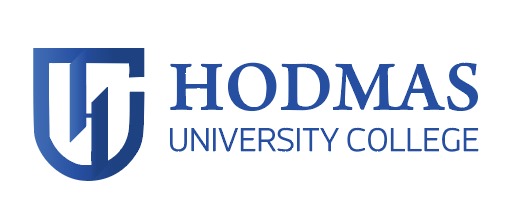
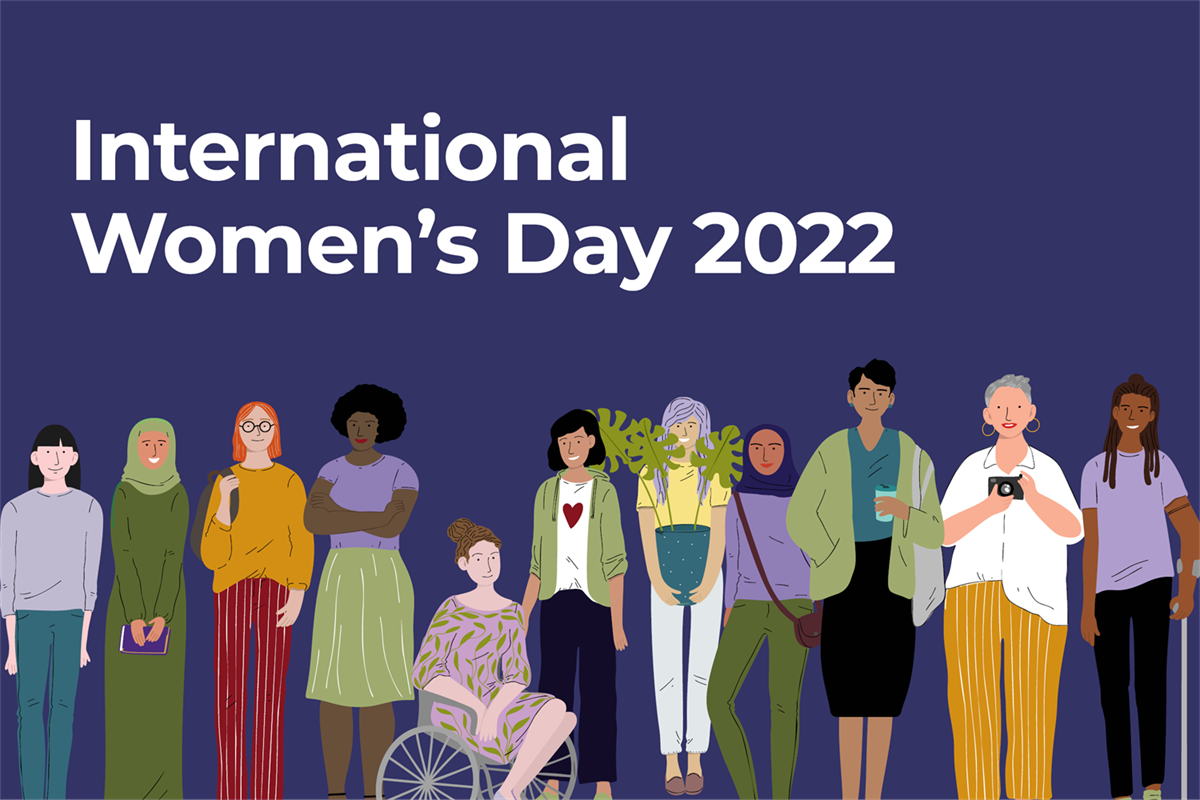
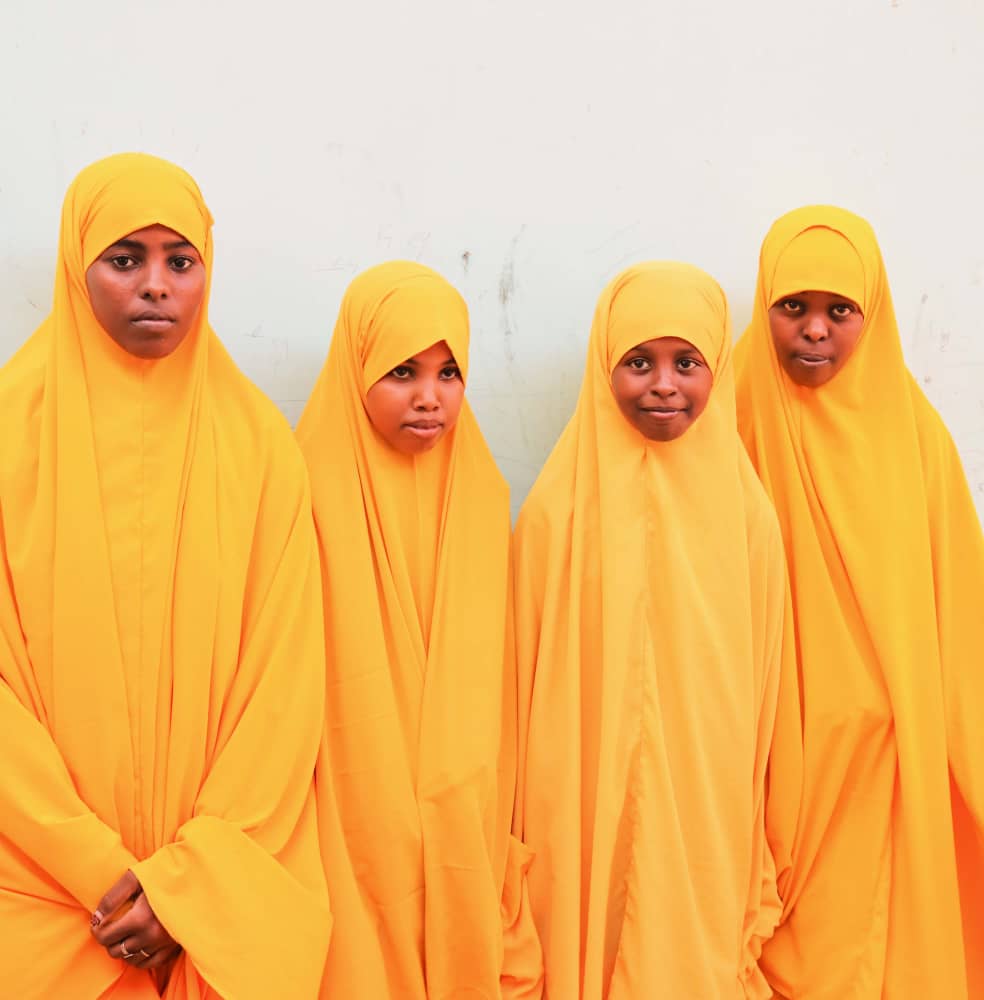
Its nice article
Well written